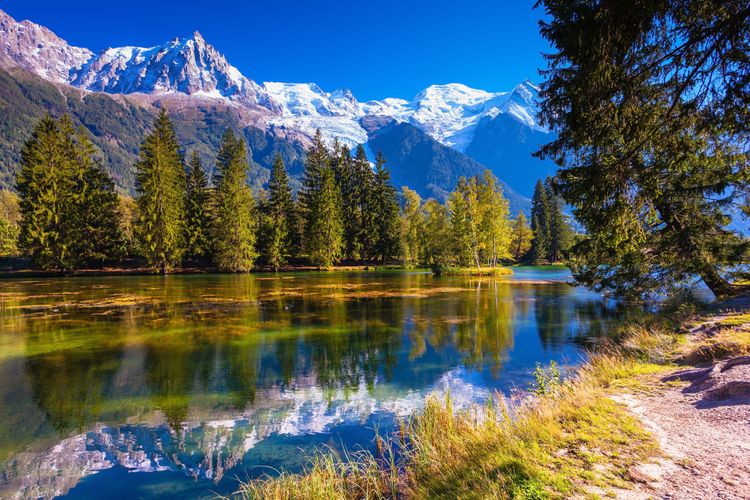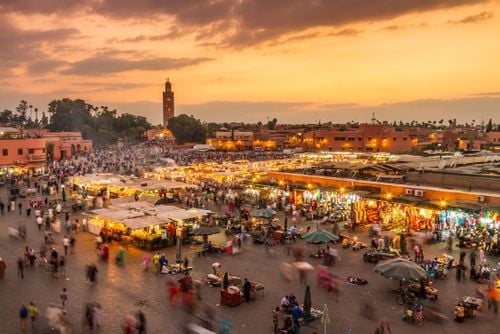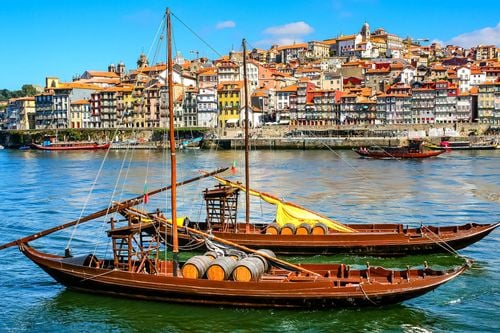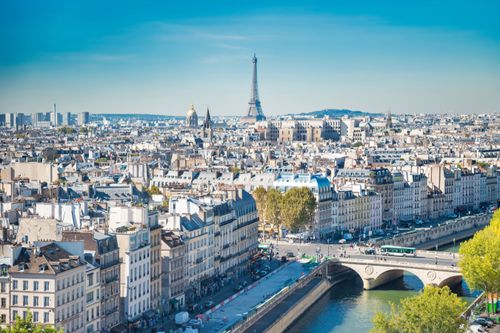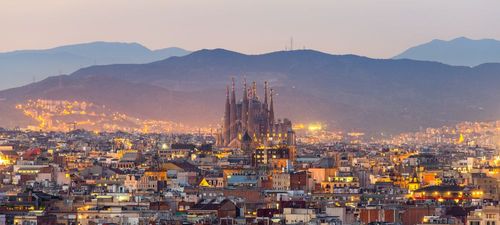As the former capital of the Counts and then Dukes of Savoie from the 13th to 16th centuries, Chambéry attracted the nobility and high-ranking city dwellers. When Savoie finally became part of France under the Treaty of Turin in 1860, Chambéry became the capital of the Savoie department.
Just an hour from Lyon, Geneva and the Italian border, Chambéry is a dynamic border town with an exceptional natural heritage! Just a few kilometres from Lac du Bourget and close to Lake Annecy and Lake Geneva, these treasures add to the exceptional panoramas to be admired in the region. At the heart of the Alps and the biggest ski resorts, this small town with its medieval streets is a real magnet for winter sports fans. The contrast between the preserved medieval centre and the contemporary part of the town underlines the modern character of this international town, which juggles art and history. From swimming in summer to skiing in winter, Chambéry has plenty to offer all year round, in a truly magical setting. En route to one of Savoie's most historic cities, whose architecture bears witness to a remarkable medieval past.
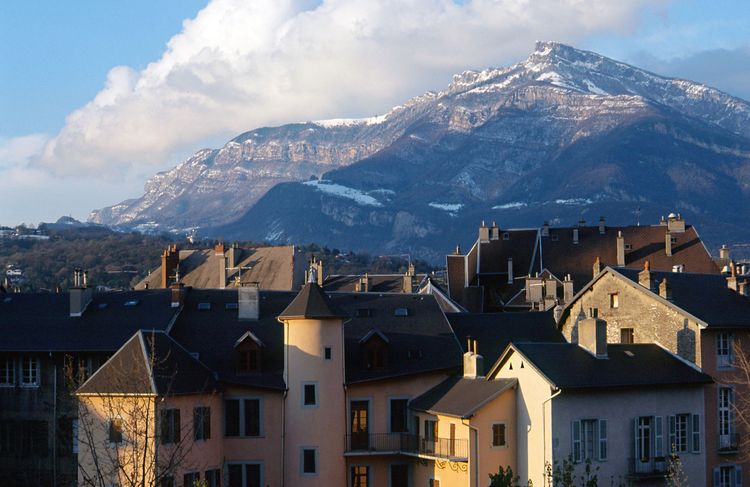
City of Chambéry, Savoie
- © fullempty/Shutterstock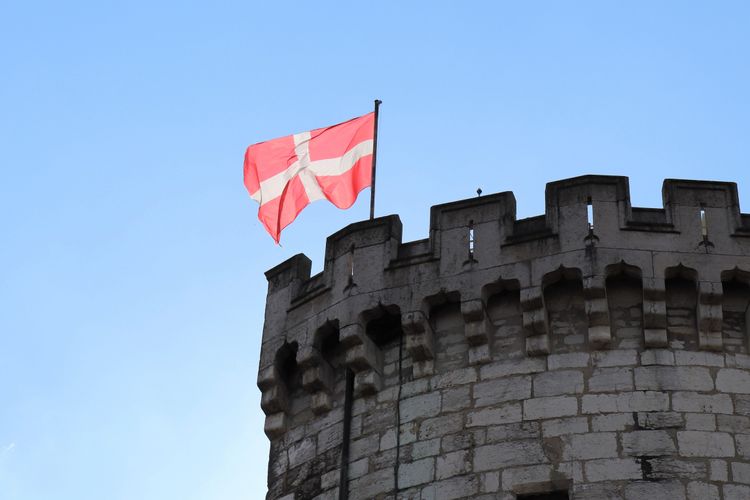
Savoy flag on the castle of the Dukes of Savoy
- © EBASCOL/ShutterstockPartly destroyed after the bombings of the Second World War, the affected districts were rebuilt in the decades that followed, with a mixture of architectural styles. Despite this, the City of the Dukes has managed to retain its identity as a historic town, recalling its glorious past through its many museums and buildings.
The legendary Château des Ducs de Savoie
Before wandering through the winding streets of the town centre, head for the unmissable Château des Ducs de Savoie. Comprising a number of more or less recent buildings, it has been home to the town's most important administrations, and today houses the headquarters of the Prefecture and the Département.
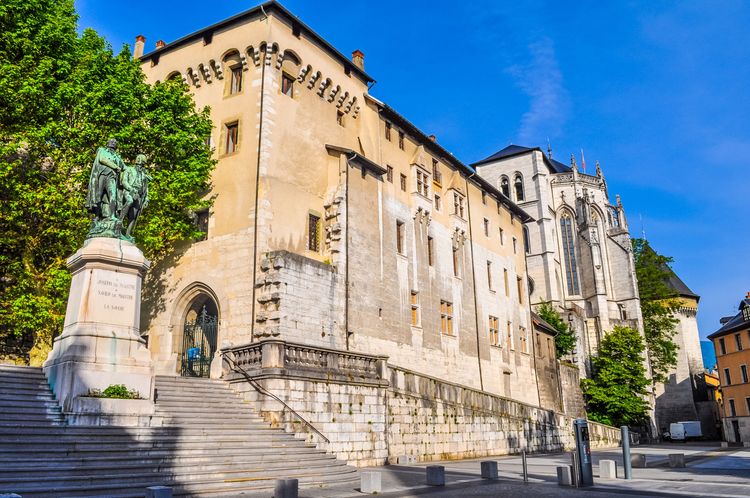
Château des Ducs de Savoie, Chambéry
- © s74/ShutterstockAs soon as they enter through the Passage de la Porterie, visitors are transported into another era. During the visit, some of the buildings stand out for their beauty, their history and their uniqueness. Among the most impressive are the Sainte-Chapelle, the half-round tower, the great carillon with its 70 bells and the courtyard of honour.
Strolling through the historic town
During the summer months, the best way to discover Chambéry is to wander around as you please and enjoy its gentle way of life! Leaving the Château, take the Rue Basse du Château, the oldest street in the town. Like most medieval streets, it is very narrow, and a wooden footbridge bears witness to its origins.
On the other side of the square, the Place Saint-Léger awaits walkers. The main pedestrian thoroughfare in the historic centre, it is adorned with a pretty little fountain, a pink flowerbed and colourful facades, making for a rather bucolic stroll. Just like the traboules in Lyon's old town, the many vaulted passageways allow you to wander through the streets and take your chances in this Savoyard commune.
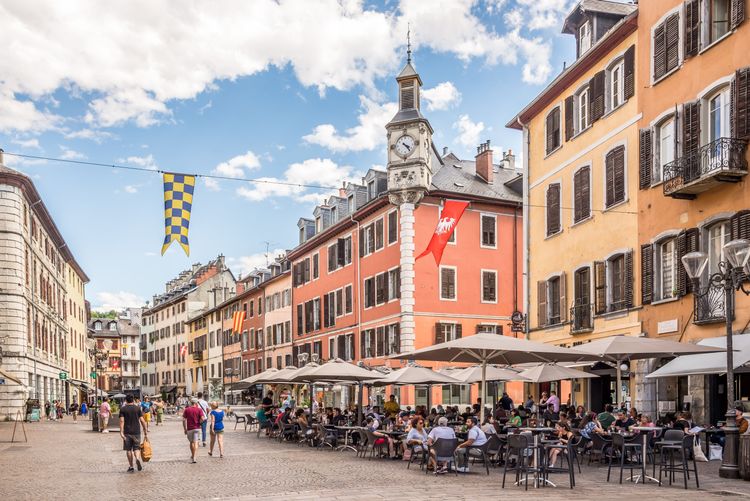
Place Saint-Léger, Chambéry, Savoie
- © milosk50/ShutterstockFor a shopping session, rue de Boigne is home to a host of chic shops behind its arcades. For an even deeper insight into the Chambéry of the past, head for rue Croix d'Or and its ancient mansions. Along the narrow streets, private mansions and other historic monuments are revealed, attracting more and more tourists as they explore.
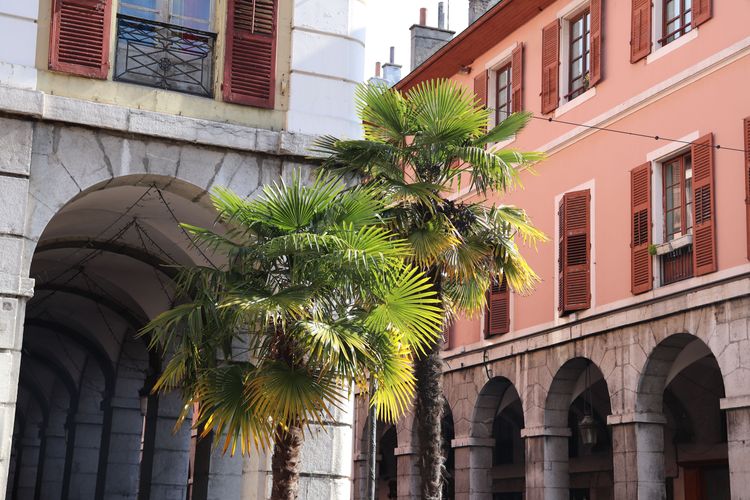
Rue de Boigne in Chambéry, Savoie
- © EBASCOL/ShutterstockThe emblems of the City of Dukes
Even more impressive from the inside than from the outside, Saint-François-de-Sales cathedral houses treasures from the 13th century. From Rue Saint-Antoine, the fully paved Place Métropole, the Gothic style emanating from the façade is quite sober. Inside, the walls are decorated with a series of trompe-l'œil paintings, adding considerable grandeur and majesty to the building.
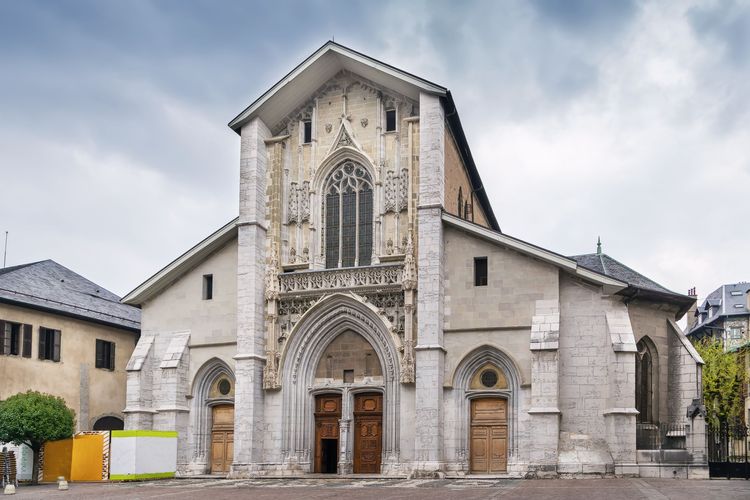
Saint-François-de-Sales Cathedral, Chambéry, Savoie
- © Borisb17/ShutterstockA little further on, the symbol of the town sits in the middle of a small square: the Fontaine des Eléphants. Standing over 17 metres high, this limestone monument to General de Boigne, a native of Chambéry, was built in 1838. With four elephants spouting water from their trunks, a column reminiscent of a palm tree and a statue representing this benefactor, the whole monument is surprisingly unusual!
Where to eat?
⭐ La Banche
In front of the Hôtel de Ville, Chambéry 's oldest restaurant and its friendly atmosphere put the spotlight on the region in its dishes! La Banche, this Chambéry institution, takes up residence in a historic building steeped in tradition. Dishes from the sea and the land share the menu and the tables, always accompanied by home-made chips prepared by David, the owner, and his team.
Practical information
📍 Address: 10 Pl. de l'Hôtel de ville, 73000 Chambéry
⏰ Opening times: 10am - 2pm Monday, 8am - 9pm Tuesday to Thursday, 8.30am - 9.30pm Friday to Saturday
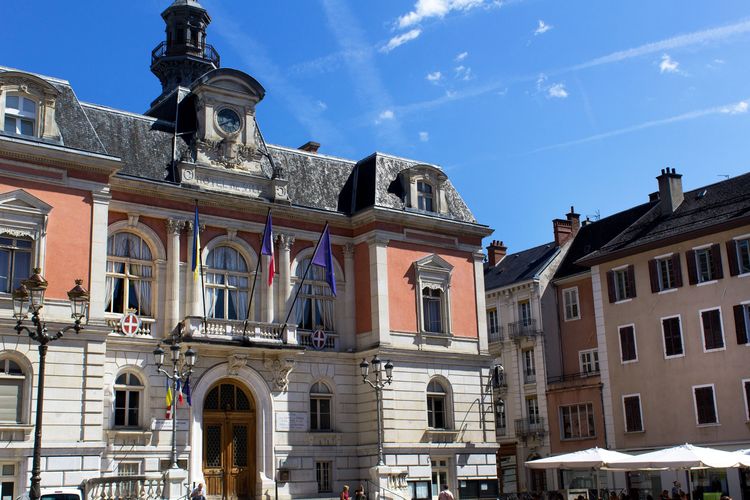
Chambéry town hall, Savoie region
- © Alina Vaska/ShutterstockWhere to sleep?
⭐ L'hôtel des Princes
When night falls, the best restaurants and bars fill up in the city centre. When staying in Chambéry, the ideal place to stay is as close as possible to these must-see addresses, so you can make the most of it! TheHôtel des Princes is just a few minutes' walk from all the major attractions in the city of the Dukes of Burgundy - ideal!
 Chambéry
Chambéry
